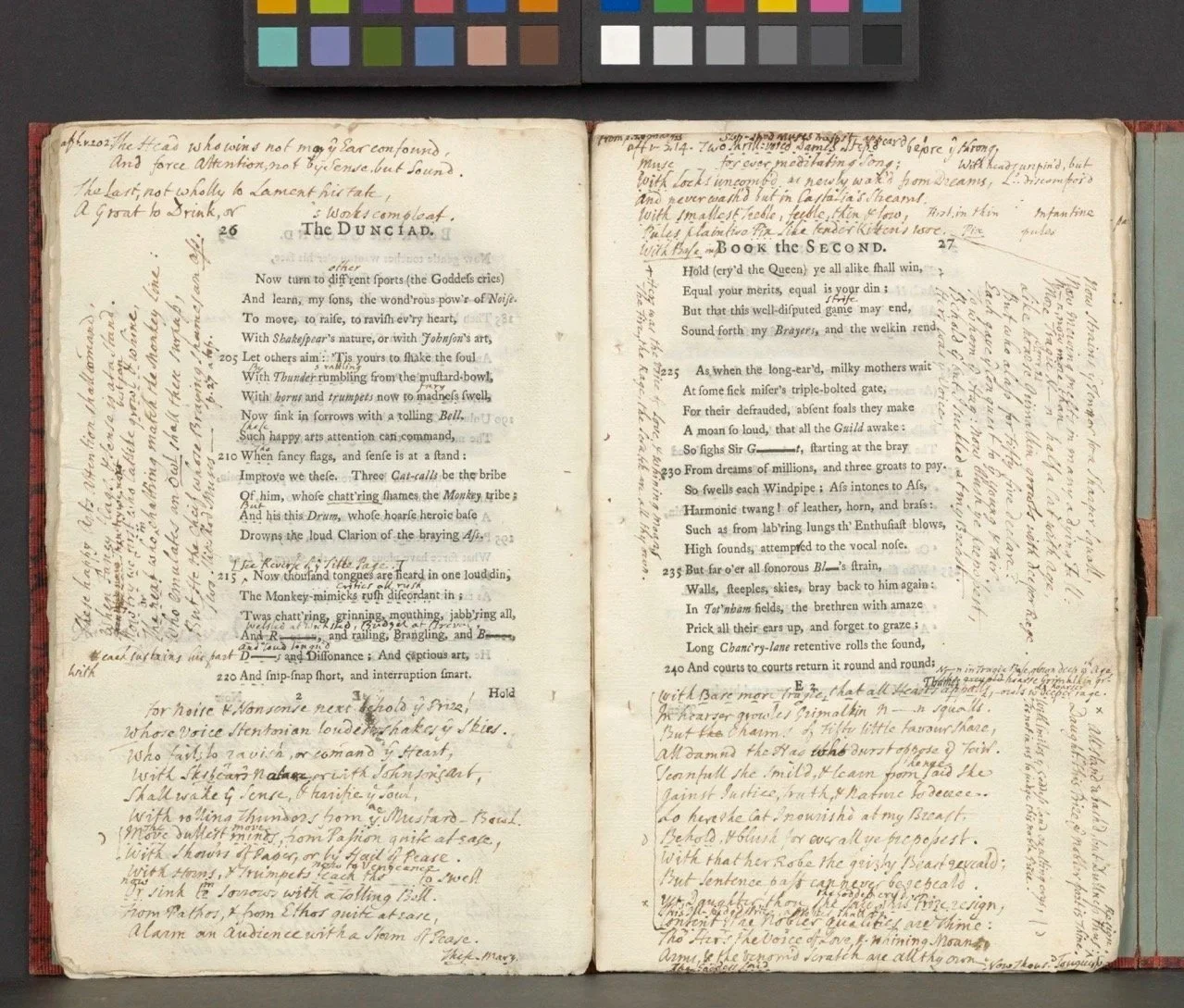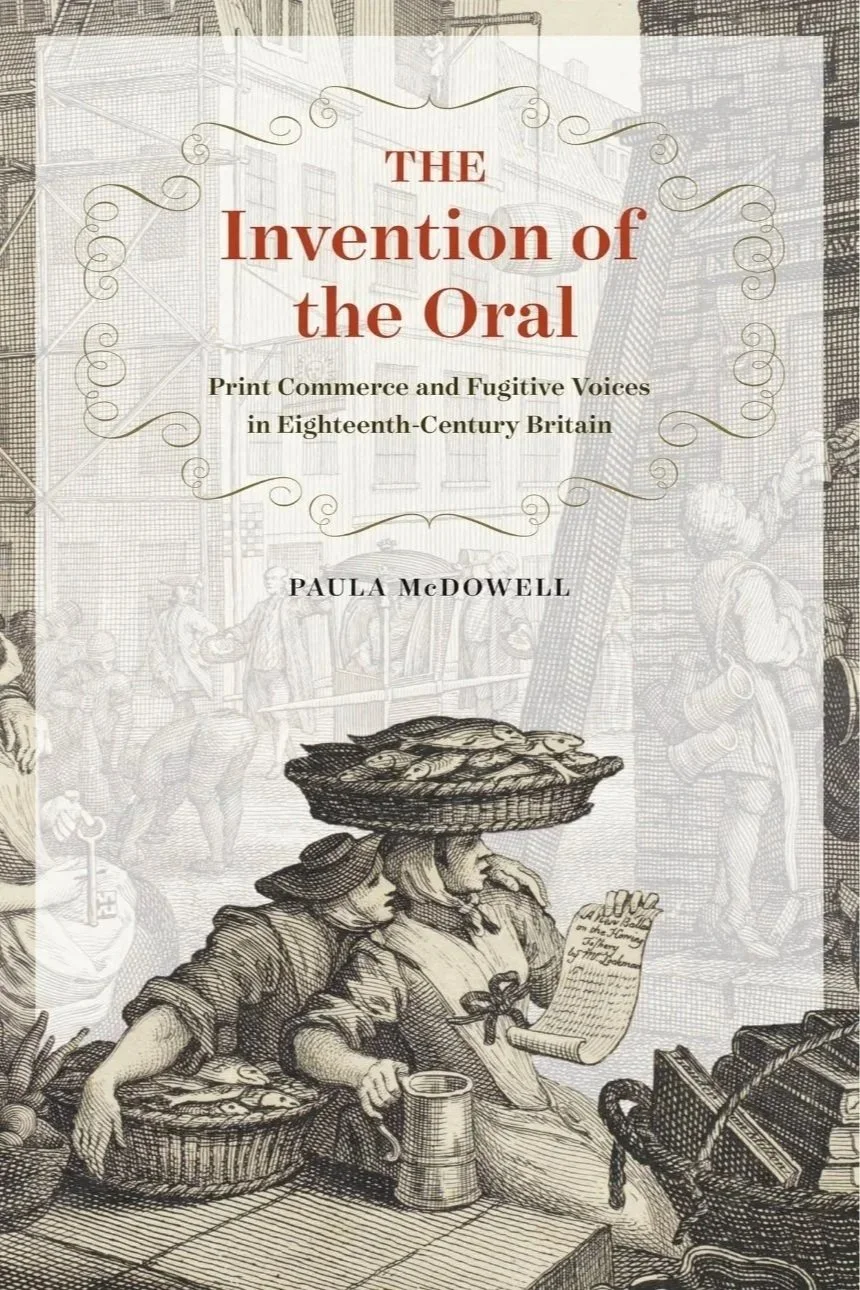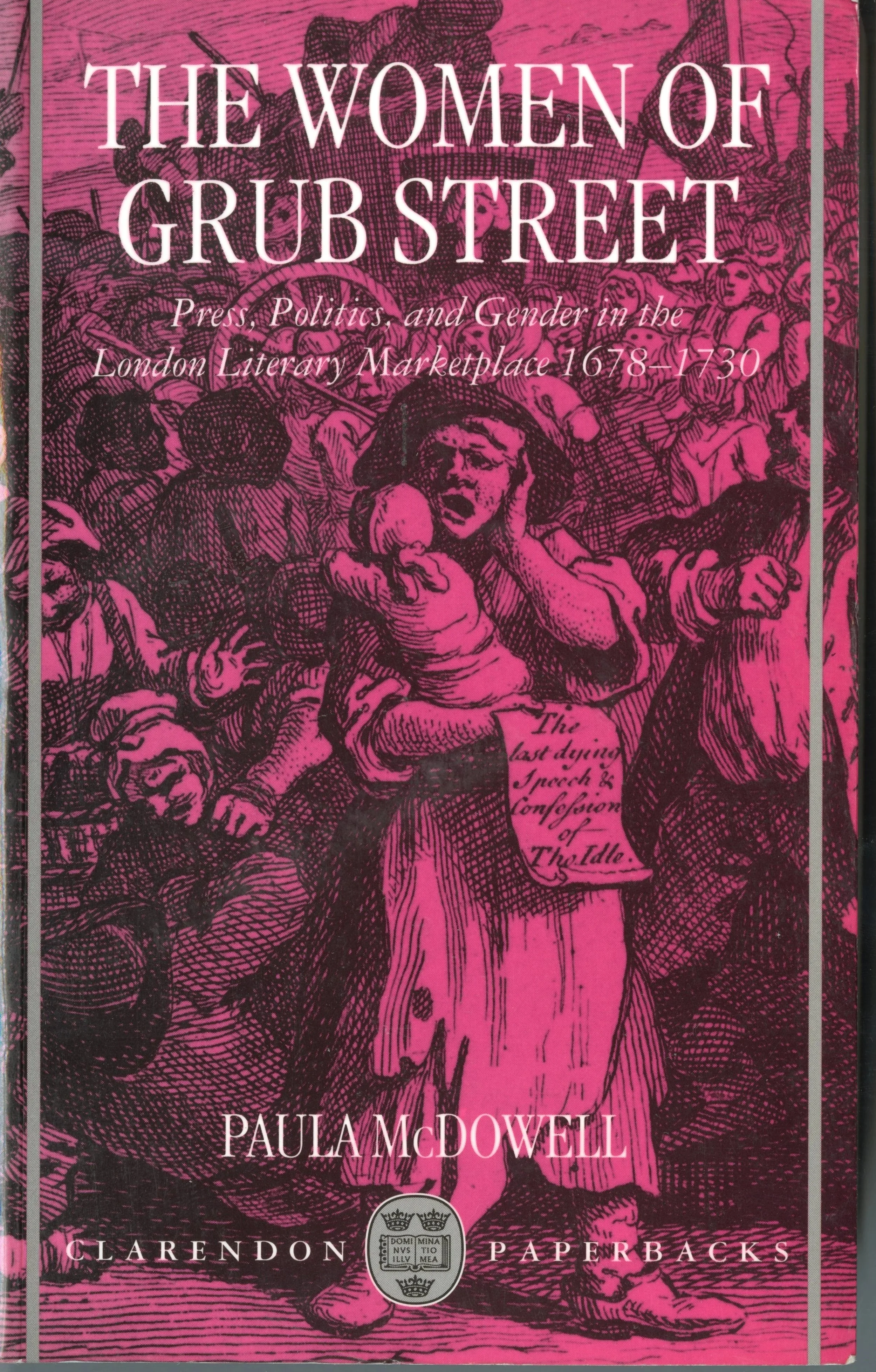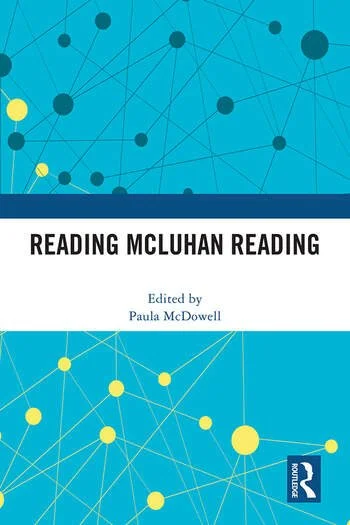
Books
The Invention of the Oral: Print Commerce and Fugitive Voices in Eighteenth-Century Britain
(University of Chicago Press 2017)
Winner of the John Ben Snow Prize from the North American Conference on British Studies
Choice Magazine: CHOICE Outstanding Academic Title Award
Just as today’s embrace of the digital has sparked interest in the history of print culture, so in eighteenth-century Britain the dramatic proliferation of print gave rise to urgent efforts to historicize different media forms and to understand their unique powers. And so it was, Paula McDowell argues, that our modern concepts of oral culture and print culture began to crystallize, and authors and intellectuals drew on older theological notion of oral tradition to forge the modern secular notion of oral tradition that we know today.
Drawing on an impressive array of sources including travel narratives, elocution manuals, theological writings, ballad collections, and legal records, McDowell re-creates a world in which everyone from fishwives to philosophers, clergymen to street hucksters, competed for space and audiences in taverns, marketplaces, and the street. She argues that the earliest positive efforts to theorize “oral tradition,” and to depict popular oral culture as a culture (rather than a lack of culture), were prompted less by any protodemocratic impulse than by a profound discomfort with new cultures of reading, writing, and even speaking shaped by print.
Challenging traditional models of oral versus literate societies and key assumptions about culture’s ties to the spoken and the written word, this landmark study reorients critical conversations across eighteenth-century studies, media and communications studies, the history of the book, and beyond.
The Women of Grub Street: Press, Politics, and Gender in the London Literary Marketplace 1678-1730
(Oxford University Press 1998)
“Breakthrough Book”: Lingua Franca
Choice Magazine: CHOICE Outstanding Academic Title Award
The first full-length study to demonstrate the degree of involvement of women from a wide variety of socioeconomic backgrounds and religio-political allegiances in the entire process of print creation in the late seventeenth and early eighteenth centuries, a decisive period in the history of the British press.
Uses a broad range of literary and archival evidence to provide a wealth of new information about middling and lower-class women's political and literary lives, and to show that these women were not merely the passive distributors of other people's political ideas.
Examines not only women writers, but also printers, booksellers, ballad-singers, hawkers, and other producers and distributors of printed texts.
Elinor James: Printed Writings 1641–1700
(Routledge 2005)
“A fascinating case study” - Laya Landau, Times Literary Supplement
This volume makes available for the first time the complete surviving works of the London printer-author Elinor James (c.1645-1719). Uniquely in the history of early modern women, James wrote, printed and distributed more than ninety pamphlets and broadsides addressing political, religious and commercial concerns. Written over a period of 35 years, her works provide us with a running commentary on the major national events of a tumultuous period such as the Revolution of 1688, the Union of England and Scotland in 1707, and the Jacobite uprisings in 1715-16. During her lifetime, England saw the succession of six different monarchs. James petitioned all of them and claimed to have obtained audiences with three. In 1689 she was gaoled in Newgate prison, accused of disseminating seditious material condemning William III for accepting the English crown. James's texts address a staggeringly broad range of concerns. She petitioned Parliament concerning legislation affecting the printing trades and petitioned fellow printers concerning labour relations in London printing houses. She petitioned City authorities on issues such as the enforcement of bylaws or who to vote for in City and parliamentary elections. It is hoped that by making available all of James's known works, this volume will inspire the collective efforts of scholars from many different disciplines to decipher her references to contemporary events, issues and persons, as well as prompting further discoveries of as yet unidentified works.
Reading McLuhan Reading
(Routledge 2023)
For more of my work on Marshall McLuhan, see Current Projects
Sixty years after Understanding Media, Marshall McLuhan remains one of the best known and most influential intellectuals of the twentieth century. Far beyond academia, readers (and non-readers) recognize his coinages, such as ‘the Gutenberg era’, the ‘global village’ and ‘the medium is the message'. A literary scholar by profession, McLuhan was one of the first academics to recognize the new opportunities offered by radio and television to reach audiences beyond the readerships of scholarly journals. His talks and appearances ushered in public intellectual debate concerning the ‘electronic age’. Although his reputation waned in the 1970s, the recent making-available to the public of his extraordinary personal library of some six thousand books enables new kinds of analyses of McLuhan as a reader, thinker, and cultural force. The essays here focus not so much on his media theory per se as on the habits and practices that animated his reading, and on the larger questions of what reading and not reading mean. We don’t need to agree with everything McLuhan says to make valuable use of his work. New resources offer us an unprecedented opportunity to revisit one fallible human reader whose texts and ideas are good to think with (and against). This book was originally published as a special issue of the journal, Textual Practice.



